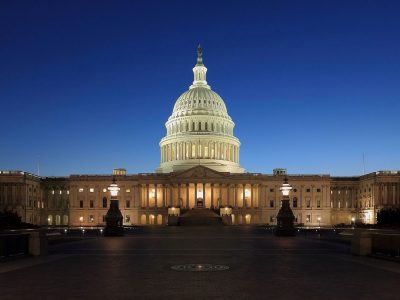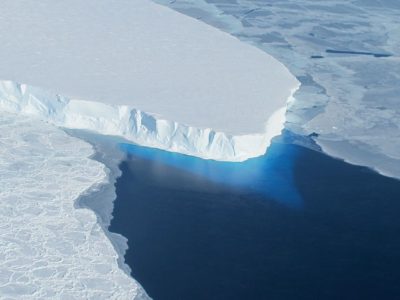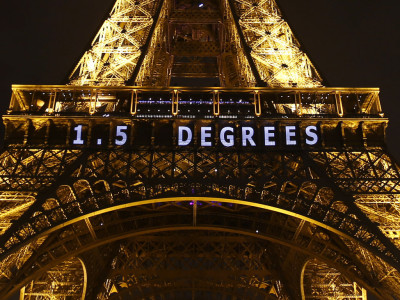geoengineering
The Kolbert Report
Elizabeth Kolbert’s new book asks what it means to protect nature in the Anthropocene.
Elizabeth Kolbert’s new book, Under a White Sky, opens with the story of the battle to keep invasive Asian carp out of the Great Lakes. The problem exists because of two earlier interventions with nature. A century ago, we reversed the flow of the Chicago river to keep the city’s pollutants out of Lake Michigan …
Continue reading “The Kolbert Report”
CONTINUE READINGThe U.S. Government Is Researching Solar Geoengineering. Now What?
Officials should use the tools on hand to get governance right.
In December, Congress renewed funding for the National Oceanic and Atmospheric Administration (NOAA) to investigate stratospheric aerosols as a potential method for “solar climate interventions,” expanding a research program established a year earlier. These actions have been widely interpreted as the first-ever federal research project into solar geoengineering—proposals to slightly “dim the sun” to limit …
Continue reading “The U.S. Government Is Researching Solar Geoengineering. Now What?”
CONTINUE READINGHow Climate Disruption May Undermine Climate Policy
The long-term harms from climate change over the next decades may undermine support for efforts to reduce emissions
Almost two straight months of wildfires and smoke in California are a tangible sign of the impacts of climate change on our lives and our world. This article from the New York Times a couple of weeks ago does a good job of laying out why the wildfires in California are only one example of …
Continue reading “How Climate Disruption May Undermine Climate Policy”
CONTINUE READINGGlacial Geoengineering and the Law of Antarctica
Could mega-adaptation projects in Antarctica slow the rise of global sea levels?
As the planet warms over the coming centuries, glacial melt in Greenland and Antarctica will lead to significant sea level rise. This phenomenon threatens to flood coastal cities, submerge island nations, and displace hundreds of millions of people. Coastal adaptation projects underway give us a glimpse into how we will respond to this future. Some …
Continue reading “Glacial Geoengineering and the Law of Antarctica”
CONTINUE READINGPrinciples of Climate Governance
We need to address the procedures and structures for climate policymaking.
There’s a lot of discussion about the substance of climate policy today. That’s obviously critical, but we also need to think about the procedural and institutional issues involved in making climate policy. For instance, we need to think about how to divide authority between the states and the federal government. I thought it would be …
Continue reading “Principles of Climate Governance”
CONTINUE READINGA Catalogue of Game Changers
We’re making progress on addressing climate change, and I’m hopeful that we’ll continue doing so. Yet it’s not clear whether the path we’re currently on will make progress fast enough to avoid very serious risks. So what would it take for us to make a quantum leap in this effort? I wouldn’t hazard a prediction …
Continue reading “A Catalogue of Game Changers”
CONTINUE READINGAnother Possible Means To Keep Global Warming Within 1.5 Degrees Celsius
Did the IPCC bury the lede regarding solar geoengineering?
In my previous posts on the reports of the Intergovernmental Panel on Climate Change (IPCC), I described how models assume the use of uncertain negative emissions technologies at very large — if not impossible — scales in order to keep global warming within 1.5 or two degrees Celsius (1, 2; see also my colleague Julia …
Continue reading “Another Possible Means To Keep Global Warming Within 1.5 Degrees Celsius”
CONTINUE READINGDoes the Paris Agreement Open the Door to Geoengineering?
If we’re serious keeping warming “well below 2°C, geoengineering may be necessary.
The Paris establishes an aspiration goal of holding climate change to 1.5°C, with a firmer goal of holding the global temperature decrease “well below” 2°C. As a practical matter, the 1.5°C goal almost certainly would require geoengineering, such as injecting aerosols into the stratosphere or solar mirrors. Even getting well below 2°C is likely to …
Continue reading “Does the Paris Agreement Open the Door to Geoengineering?”
CONTINUE READINGClimate Engineering: National Academy Committee recommends starting research (with limits)
An NAS report on controversial engineered responses to climate change gets all the big things right, but avoids the hardest questions
Earlier this week, the National Research Council Committee on Geoengineering Climate released two reports, “Climate Intervention: Carbon Dioxide Removal and Reliable Sequestration” and “Climate Intervention: Reflecting Sunlight to Cool Earth.” Requested and funded by several US federal departments – NASA, NOAA, DOE, and the cutely labeled “U.S. Intelligence Community” – this report is the first …
CONTINUE READINGIs geoengineering inevitable?
There’s been a lot of attention paid to a geoengineering “experiment” conducted recently in the North Pacific. A team distributed iron into the ocean: This is a form of geoengineering because, in many parts of oceans around the world, iron is the main nutrient that limits the growth and productivity of phytoplankton. If you add more iron in …
Continue reading “Is geoengineering inevitable?”
CONTINUE READING








